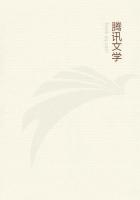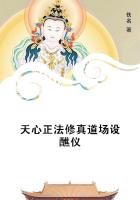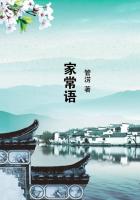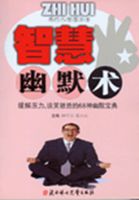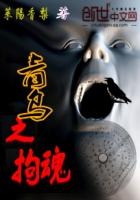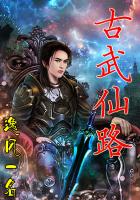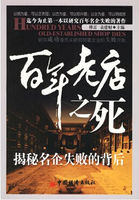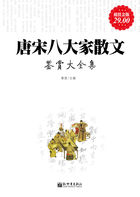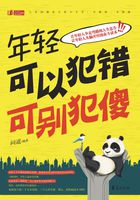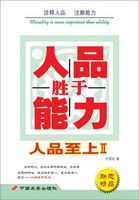So long ago that one was half-frightened by the legend of the "Beleaguered City."I know the ballad brought the scene to me so vividly that I expected,any frosty night,to see how "The white pavilions rose and fell On the alarmed air;"and it was down the valley of Ettrick,beneath the dark "Three Brethren's Cairn,"that I half-hoped to watch when "the troubled army fled"--fled with battered banners of mist drifting through the pines,down to the Tweed and the sea.The "Skeleton in Armour"comes out once more as terrific as ever,and the "Wreck of the Hesperus"touches one in the old,simple way after so many,many days of verse-reading and even verse-writing.
In brief,Longfellow's qualities are so mixed with what the reader brings,with so many kindliest associations of memory,that one cannot easily criticize him in cold blood.Even in spite of this friendliness and affection which Longfellow wins,I can see,of course,that he does moralize too much.The first part of his lyrics is always the best;the part where he is dealing directly with his subject.Then comes the "practical application"as preachers say,and I feel now that it is sometimes uncalled for,disenchanting,and even manufactured.
Look at his "Endymion."It is the earlier verses that win you:
"And silver white the river gleams As if Diana in her dreams Had dropt her silver bow Upon the meadows low."That is as good as Ronsard,and very like him in manner and matter.
But the moral and consolatory application is too long--too much dwelt on:
"Like Dian's kiss,unasked,unsought,Love gives itself,but is not bought."Excellent;but there are four weak,moralizing stanzas at the close,and not only does the poet "moralize his song,"but the moral is feeble,and fantastic,and untrue.There are,though he denies it,myriads of persons now of whom it cannot be said that "Some heart,though unknown,Responds unto his own."If it were true,the reflection could only console a school-girl.
A poem like "My Lost Youth"is needed to remind one of what the author really was,"simple,sensuous,passionate."What a lovely verse this is,a verse somehow inspired by the breath of Longfellow's favourite Finnish "Kalevala,""a verse of a Lapland song,"like a wind over pines and salt coasts:
"I remember the black wharves and the slips,And the sea-tide,tossing free,And Spanish sailors with bearded lips,And the beauty and the mystery of the ships,And the magic of the sea."Thus Longfellow,though not a very great magician and master of language--not a Keats by any means--has often,by sheer force of plain sincerity,struck exactly the right note,and matched his thought with music that haunts us and will not be forgotten:
"Ye open the eastern windows,That look towards the sun,Where thoughts are singing swallows,And the brooks of morning run."There is a picture of Sandro Botticelli's,the Virgin seated with the Child by a hedge of roses,in a faint blue air,as of dawn in Paradise.This poem of Longfellow's,"The Children's Hour,"seems,like Botticelli's painting,to open a door into the paradise of children,where their angels do ever behold that which is hidden from men--what no man hath seen at any time.
Longfellow is exactly the antithesis of Poe,who,with all his science of verse and ghostly skill,has no humanity,or puts none of it into his lines.One is the poet of Life,and everyday life;the other is the poet of Death,and of bizarre shapes of death,from which Heaven deliver us!
Neither of them shows any sign of being particularly American,though Longfellow,in "Evangeline"and "Hiawatha,"and the "New England Tragedies,"sought his topics in the history and traditions of the New World.
To me "Hiawatha"seems by far the best of his longer efforts;it is quite full of sympathy with men and women,nature,beasts,birds,weather,and wind and snow.Everything lives with a human breath,as everything should live in a poem concerned with these wild folk,to whom all the world,and all in it,is personal as themselves.Of course there are lapses of style in so long a piece.It jars on us in the lay of the mystic Chibiabos,the boy Persephone of the Indian Eleusinia,to be told that "the gentle Chibiabos Sang in tones of deep emotion!""Tones of deep emotion"may pass in a novel,but not in this epic of the wild wood and the wild kindreds,an epic in all ways a worthy record of those dim,mournful races which have left no story of their own,only here and there a ruined wigwam beneath the forest leaves.
A poet's life is no affair,perhaps,of ours.Who does not wish he knew as little of Burn's as of Shakespeare's?Of Longfellow's there is nothing to know but good,and his poetry testifies to it--his poetry,the voice of the kindest and gentlest heart that poet ever bore.I think there are not many things in poets'lives more touching than his silence,in verse,as to his own chief sorrow.Astranger intermeddles not with it,and he kept secret his brief lay on that insuperable and incommunicable regret.Much would have been lost had all poets been as reticent,yet one likes him better for it than if he had given us a new "Vita Nuova."What an immense long way I have wandered from "Sordello,"my dear Mainwaring,but when a man turns to his books,his thoughts,like those of a boy,"are long,long thoughts."I have not written on Longfellow's sonnets,for even you,impeccable sonneteer,admit that you admire them as much as I do.

